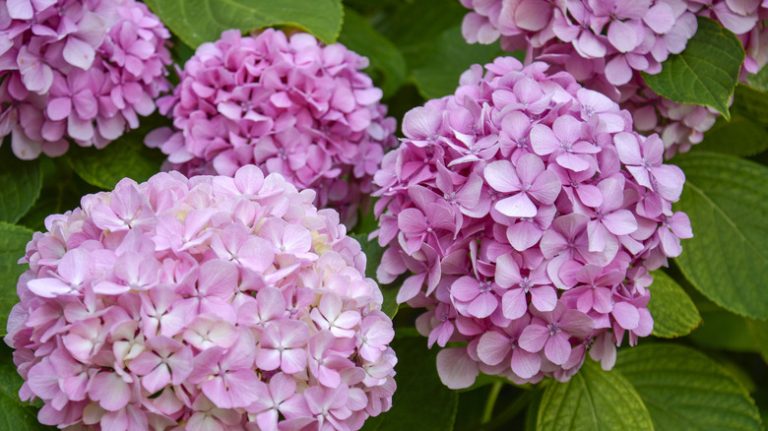Juniper berries are small, round berries that come from the evergreen juniper trees. They are well-known for their uses in cooking and medicine. In the culinary world, juniper berries are often used to add flavor to dishes, especially when preparing sausages and venison. They have a wonderful, sweet and slightly spicy flavor, which can be described as a combination of pine, citrus, and black pepper.
When it comes to medicinal uses, juniper berries have been used for centuries as an effective remedy for various ailments. They are rich in essential oils and antioxidants, making them a powerful natural medicine. Juniper berries have been used to treat digestive problems, urinary tract infections, arthritis, and even the common cold.
Juniper berries can be used in many different ways, depending on what you are looking to achieve. You can buy them online or find them in the wild by foraging for juniper trees. Just make sure you are confident in identifying the correct berries, as there are other similar-looking berries that are not edible.
When using juniper berries in cooking, you can either crush them and use them as a spice, or you can add them whole to your dishes for a milder flavor. They are often used as a substitute for peppercorns in recipes and can add a unique and interesting taste to your meals. If you’re not sure how to prepare juniper berries, a quick Google search will provide you with many recipes and ideas.
In addition to their culinary and medicinal uses, juniper berries are also used in landscaping and as a flavoring for certain alcoholic beverages, such as gin. The uses of juniper berries are vast and can be explored in many different ways. Whether you are a seasoned cook or someone interested in natural medicine, juniper berries are a versatile and powerful ingredient that can enhance the taste of your food and improve your overall well-being.
How to Cook Food Flavored With Juniper Berries
Juniper berries are most commonly used in recipes for meat dishes, particularly game meats like venison. Their strong, slightly sweet and piney flavor pairs perfectly with the rich, gamey taste of these meats. To incorporate juniper berries into your cooking, you can try using them in marinades, rubs, or sauces for a unique and delicious twist.
One popular dish that uses juniper berries is sausage. Juniper berries are often a key ingredient in sausage recipes, adding a distinctive and complex flavor to the meat. If you’re a fan of sausages, you can try making your own using juniper berries – there are plenty of recipes available online for you to try.
Aside from being great for flavoring food, juniper berries also have other interesting uses. They can be used to make teas and infusions that have a variety of health benefits. Juniper tea is known for its diuretic properties and is often used to promote kidney health and aid digestion.
If you’re interested in wildcrafting, you can also gather your own juniper berries. Just make sure to properly identify the trees and berries before you pick them, as there are different species of juniper. Once you have your juniper berries, you can use them fresh or dried in your cooking.
In addition to their culinary uses, juniper berries are also sometimes used in brewing beer and making wine. They can add a unique flavor and aroma to these beverages, especially when combined with other herbs and spices. If you enjoy home brewing, consider experimenting with juniper berries to create your own special brew.
So, next time you’re in the kitchen, why not try adding juniper berries to your favorite dishes? You’ll be amazed at the wonderful flavors and aromas they can bring. Whether it’s in a savory meat dish or a refreshing cup of tea, juniper berries are a versatile and delicious ingredient.
Other Uses of the Juniper Berry
In addition to its culinary uses, juniper berries have a variety of other applications. They have been used in medicine for centuries and are still commonly found in herbal remedies. Juniper berries can be used to prepare teas and tinctures that are effective in treating digestive issues and urinary tract infections.
Juniper berries are also commonly used in the production of gin. The berries are added to the spirit during the distillation process to give it its distinct flavor. In addition to gin, juniper berries can also be used to flavor other alcoholic beverages such as vodka and whiskey.
Juniper berries are also sometimes used in landscaping. They can be planted as an ornamental shrub or used as a hedge, adding a touch of beauty to any garden or yard. The berries themselves can be used as a natural dye, giving fabrics a unique and vibrant color.
In some regions, juniper berries are also used as a substitute for hops in beer brewing. They add a unique flavor and aroma to the beer, creating a distinct and wonderful taste. Some breweries even specialize in brewing juniper berry beers.
Juniper berries have also been used in traditional folk medicine. They have been used to treat various ailments such as arthritis, rheumatism, and even menstrual cramps. Their powerful anti-inflammatory properties make them an effective remedy for these conditions.
Juniper berries are a well-known ingredient in many traditional dishes, especially those that feature game meat such as venison. The berries’ unique flavor pairs well with the rich taste of game, adding depth and complexity to the dish.
When foraging for juniper berries in the wild, it is important to be able to identify the trees from which they come. Juniper trees can be found in many parts of the Northern Hemisphere, and their berries are typically dark purple or blue in color. It is best to gather the berries before they fully ripen, as they are most flavorful at this stage.
In conclusion, juniper berries have many uses beyond being a flavorful addition to food. Whether you use them in cooking, medicine, brewing, or landscaping, juniper berries are a versatile and powerful ingredient that can elevate your creations to new heights.
What Are Juniper Berries
Juniper berries are the fruit of juniper trees, which are evergreen trees commonly found in the Northern Hemisphere. These small berries are typically dark purple or blue in color and have a sweet and spicy flavor. They are often used as a spice in cooking and can be added to dishes to give them a unique and delicious taste. Juniper berries are also popular for their medicinal uses and have been used for centuries in traditional medicine.
When it comes to culinary uses, juniper berries are most commonly used in recipes for meat dishes, particularly game meat such as venison or wild boar. They can be ground and used as a spice rub or added whole to stews and marinades. Juniper berries are also a key ingredient in making gin, where they impart their distinct flavor to the spirit.
In terms of medicinal uses, juniper berries are believed to have a number of health benefits. They are rich in antioxidants and have been used to treat various ailments, including digestive issues, urinary tract infections, and arthritis. Juniper berry extract is often touted as an effective natural remedy for these conditions.
Juniper berries can be purchased dried or fresh, depending on your preference and availability. They can be found in some grocery stores, health food stores, or online. If you’re interested in wildcrafting and foraging, you can also try identifying and harvesting juniper berries from wild juniper trees.
It’s important to note that while juniper berries are edible and have culinary and medicinal uses, they should be consumed in moderation. Excessive consumption can cause adverse effects, particularly for those with certain medical conditions or who are taking certain medications.
In summary, juniper berries are a versatile and flavorful fruit that can be used in both cooking and medicine. Whether you’re adding them to your favorite recipes for a unique taste or using them as a natural remedy for various ailments, juniper berries offer a wonderful array of uses. Just remember to use caution and consult healthcare professionals when appropriate.
How to Prepare Juniper Berries
Juniper berries are small, flavorful fruits that can be used in a variety of dishes and recipes. If you’re interested in using juniper berries in your cooking, here are a few tips on how to prepare them:
- Gather your juniper berries: Juniper berries can be found on juniper trees, which are commonly grown for landscaping purposes. You can also forage for juniper berries in the wild, although it’s important to be knowledgeable about identifying juniper trees and berries before eating or using them.
- Wash and dry the berries: Before using juniper berries, it’s best to wash and dry them thoroughly to remove any dirt or debris.
- Crush or grind the berries: Juniper berries are most commonly used in cooking when they are crushed or ground. This helps to release their flavorful oils and spices. You can crush the berries using a mortar and pestle or grind them in a spice grinder.
- Add the berries to your dishes: Juniper berries have a powerful and distinctive flavor that can add depth and complexity to a variety of dishes. They are commonly used in recipes for sausage, game meat, and other savory dishes. You can also try adding juniper berries to sauces, marinades, or even homemade spice blends.
- Try them in teas: In addition to savory dishes, juniper berries can also be used to make herbal teas. Simply steep a few crushed berries in hot water for a few minutes to enjoy a warm and flavorful cup of juniper berry tea.
Whether you’re using juniper berries in your cooking or enjoying them as a tea, they can be a wonderful addition to your culinary repertoire. Just remember to use them in moderation, as their flavor can be quite potent!




